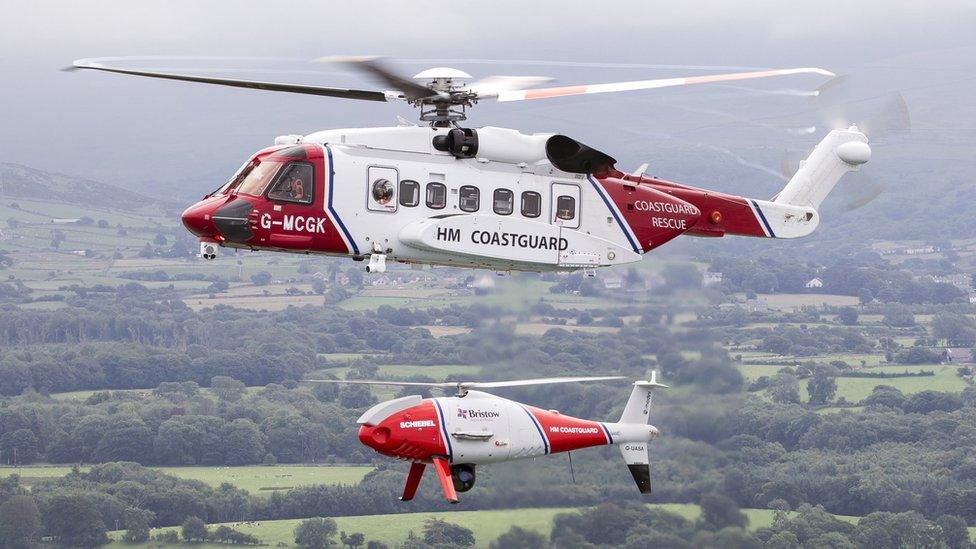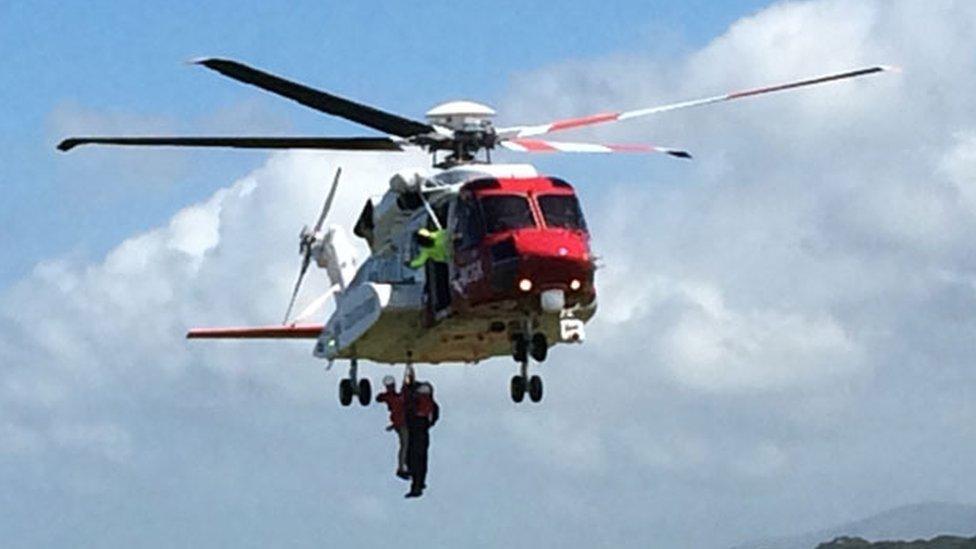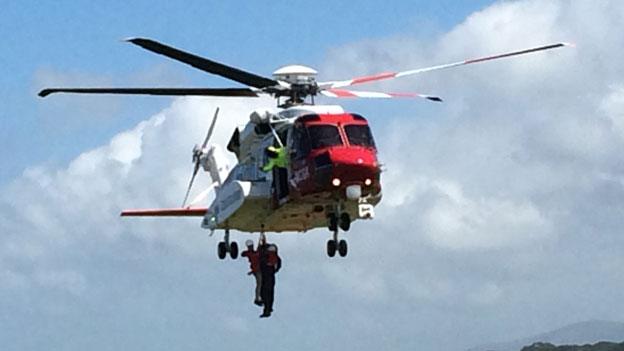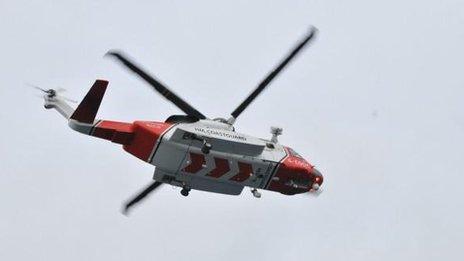'Baby shark' drones to help rescue helicopter missions
- Published
The drone has been tested for the last three months in skies above north Wales
Drones are to start operational missions for the first time in the UK to assist search and rescue helicopters.
The remotely controlled aircraft - which some have given the unofficial nickname of "baby shark" - will provide safety flight patrols over north Wales.
The trial follows three-months of testing at Caernarfon in Gwynedd.
Initially, the drones will fly at the weekend only, allowing coastguard teams to watch live incidents from the air.
"Search and rescue is about saving lives. Every second counts and every minute saved can prove the difference between life and death," said Claire Hughes, director of HM Coastguard.
"This kind of technology has a big part to play in those moments alongside our helicopters, coastguard rescue teams and our partners from the RNLI to independent lifeboats and hovercraft."

The "baby shark" Schiebel drone will help coastguard air crews over north Wales
The drones - also called unmanned aerial vehicles or UAVs - are built by Austrian firm Schiebel and have a range of 108 nautical miles (200km).
They can operate at up to 18,000ft (5,500m), staying airborne for about 10 hours.
They can beam live footage back to their control room day or night, even in adverse weather conditions.
"UAV technology has advanced to the stage where its deployment significantly enhances the capability of air search and rescue operations, improving the reach of the service and reducing risk for the public and our crews," said Russ Torbet, director of search and rescue operations for Bristow Helicopters, which runs the service on behalf of the coastguard.
"These systems provide us with an option to keep our Sikorsky S92 helicopter crew at Caernarfon on standby for lifesaving events, while the unmanned aircraft are tasked with providing safety overwatch and monitoring, which those manned aircraft would otherwise have been sent to carry out."

HM Coastguard and Bristow took over search and rescue operations in north Wales from the RAF in 2015
The north Wales operation completed 270 missions last year, with half of those in the hills and mountains of Snowdonia.
The UK government said it expected unmanned aircraft to fulfil an increasingly important role in search and rescue when it awards a new contract for the service in 2022.
Maritime minister Kelly Tolhurst added: "We will stop at nothing to keep people safe on our shores and in our seas, exploring new and innovative ways to further bring search and rescue into the 21st Century.
"Drones have the potential to help our coastguard teams help save even more lives so I'm excited we're pioneering these advances in the UK."
- Published1 July 2015

- Published26 March 2013
